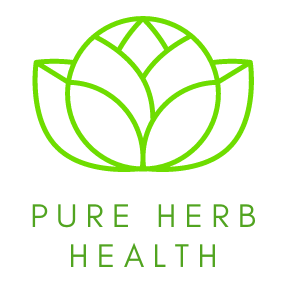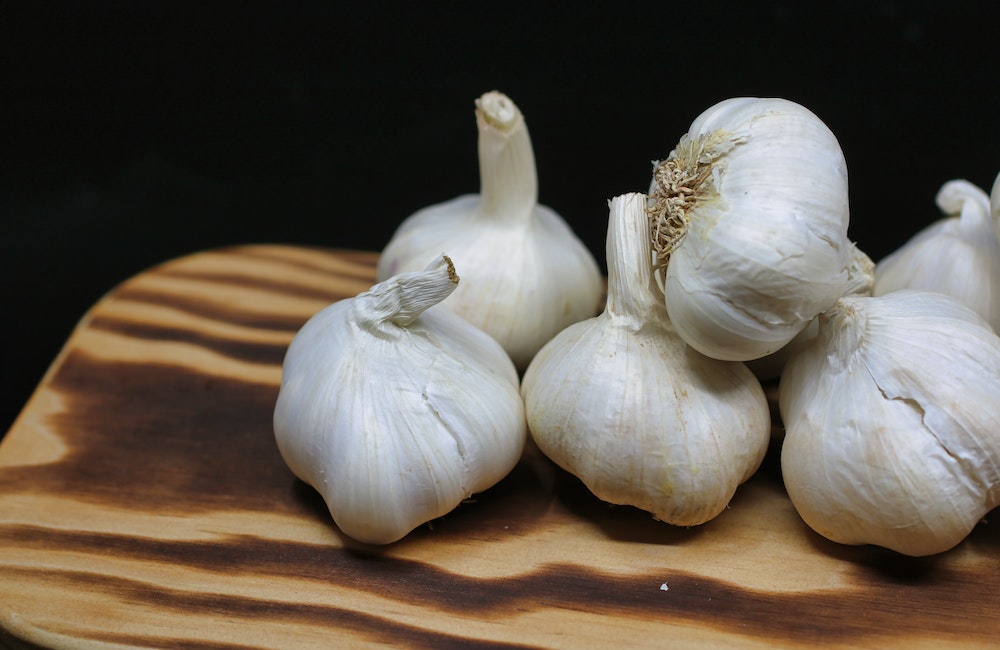Garlic (Allium sativum L.) is a perennial herb that shares some relationship with onions. The fully grown plant reaches about 50-60cm and bears underground bulbous root having about 8 -20 segments that as known as cloves, which constitute the edible part.
Classification
There are about 11 different horticultural groups due to its wide spread from continent to continent. For knowledge sake let me mention a few; they are classified as follows.
-
Soft neck varieties
-
- Silver skin
- Artichoke
- Middle eastern
-
Hard neck varieties
-
- Porcelain
- Rocambole
- Purple Stripe
- Glazed Purple Stripe
- Marble Purple Stripe
- Asiatic
- Turban
- Creole
China is the leading producer of garlic in the world, followed by India, South Korea and Egypt. It has been used in the ancient time for both culinary and medicinal purposes.
In recent times there has been a lot of researches on this herb making it possible to establish some facts that made it an herb that is a great health asset. There are several preparations available for both prevention and relief of some health conditions and symptoms.
Garlic contains some amounts of three energy generating nutrients and significant amount of others as – manganese, calcium, phosphorous, copper, sodium, selenium, vitamins B1, B2, vitamin C, etc.
Whole bulb contains some phytochemicals that are bioactive and are the main components responsible for the health benefits. These are: alliin, methiin and S-allylcysteine.
When garlic is crushed, for example, enzymes in fresh garlic convert alliin into compound known as allicin, which is active biologically for a short time when exposed to air.

Health Benefits of Garlic
Let us explore some health benefits that have made this herb of special interest in recent times. In ancient time and in Ayurvedic medicine, garlic has been found most useful in prevention, management and cure of some ailments.
There has been so many researches in recent times and it has been found that it can destroy bacteria, stop the growth of micro-organisms and expels intestinal worms and/or parasites.
It is also an antioxidant (mopping free radicals). It relieves cramps, thins blood, eases colic pain, prevents formation of clots in the blood, has anti-tumour activities, aid digestion, destroy viruses, increase the flow of urine, promotes perspiration, etc.
Garlic Use In Diabetes Mellitus
It has been found to help in reducing blood glucose level. It is also effective in reducing insulin resistance in a diabetic patient. It is a known fact that due to the high blood glucose in diabetes, sexual performance is affected especially in men as a result of erectile dysfunction but this is improved if garlic is added to metformin (drug used in controlling blood sugar) in management of diabetes.
More research works need to be done in this area as it is not advisable medically for now to stop the use of your prescription drug and be using only garlic.
Improves Circulation
Wild garlic has been used for a very long time in prevention and treatment of cardiovascular disease conditions. It significantly reduces the blood pressure in hypertensive patients.
It prevents formation of blood clots within the blood vessels (thrombosis), atherosclerosis, reduction of serum cholesterol and triglyceride, angina pectoris (chest pain).
Daily consumption improves blood circulation, thins the blood thereby reducing the risk of stroke and heart attack and so many other benefits that may not have even known for now.
Gastrointestinal Friendly
Garlic is naturally high in a compound called inulin, a type of non-digestible carbohydrate or “functional fiber” that the good bacteria in the digestive system feed on and at same time prevents disease promoting bacteria from forming.
This improves the overall function of the guts. It can relieve belching and heaviness, colic, gas (flatulence), nausea. It also helps in elimination of intestinal parasites especially pinworms. It can stimulate the activities of digestive organs. It also helps in ulcer healing.
Immune System Booster
Adequate consumption helps fight infections in the body, improves resistance to infections, increase the activity of the white blood cells and T-helper cells (natural killer cells), the cells that are central to the activity of the entire immune infections of the body.
It protects cell membrane and DNA from damage. We can then say that garlic has the ability to protect the body against most infectious disease therefore can be used as a preventative measure.
The above are all possible because of the sulphur bioactive component and its antioxidant and anti inflammatory properties.
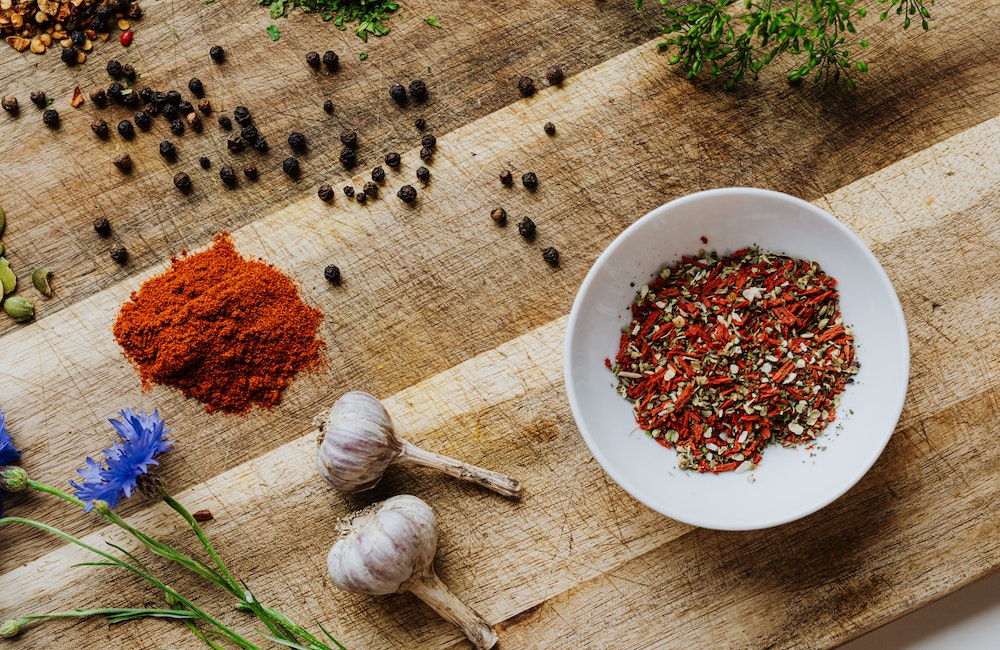
Anti Inflammatory Agent
Garlic has been found beneficial in most inflammatory conditions like arthritis, rheumatoid arthritis, etc. In inflammatory diseases, it is associated with the decrease of both inflammatory mediators and reactive oxygen specie (ROS) generation.
It contains compounds allicin and diallyl sulphide that help enhance immune cell activity and inhibit the expression of inflammatory proteins. They may also decrease the production of damaging molecules by suppressing certain enzymes.
Breathe Easy
Respiratory tract conditions like asthma, breathing difficulties, chronic bronchitis, cold, cough and hoarseness, sinusitis etc. have been shown to have remarkable improvement when garlic was used in their management.
In high doses, it inhibits the growth of the organism that is responsible for tuberculosis. It has been found very beneficial in the treatment or management of upper respiratory infections especially infections deep in the lungs and throat and in the nasal passages or sinuses.
Effect on Liver
Several studies have shown that this herb can protect the liver cells from some toxic agents. Some drugs like acetaminophen (paracetamol), a common analgesic and antipyretic drug used widely and also gentamicin can actually cause damage to the liver and kidney when it is overdosed.
The use of garlic supplements thereby stimulates the production of the liver’s own detoxifying enzymes which neutralise carcinogens and other environmental toxins. The antioxidant action also helps to mop up the free radicals and protect the liver cells.
It helps to regularise liver and gallbladder activity. It lowers total cholesterol levels while increasing the level of the good cholesterol, HDL (high density lipoproteins) thereby not allowing the formation of fatty liver.
Anti Viral and Anti Bacterial
This herb has been used for centuries to treat both viral and bacterial infections. It can be said that garlic is as good as a broad-spectrum antibiotic as it conveniently handles infections that are caused by a wide range of bacteria.
The antibacterial activity of garlic is attributed to allicin. Some antibiotics like ciprofloxacin has been found to work better when combined with garlic preparations.
When cloves of garlic and ginger root are extracted in alcohol , it can take care of multi drug resistant strains of bacteria. It has some activities against the virus of common cold but its better used to prevention.
Kills Parasites
Roundworms have been shown to be expelled by preparations made from fresh, raw garlic.
Effect on Cancer
Wild garlic has been found to contain a large number of potent bioactive compounds with anticancer Properties, largely due to the allylsulphide derivatives. It does reduce growth rate of cancer cells.
It has a variety of anti-tumour effects, including tumour cell growth inhibition and chemo preventive effects against: breast cancer, throat cancer, prostate cancer etc.
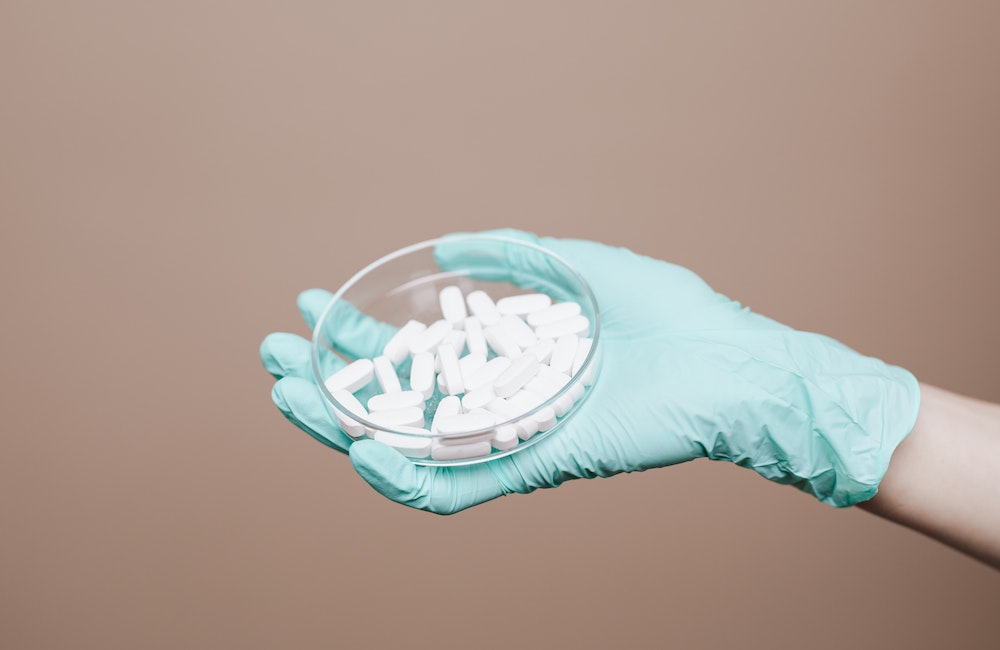 Drugs That Interact With Garlic Preparations
Drugs That Interact With Garlic Preparations
Medical advice should be sought if you are on any of these medications listed below and want to take any preparations, as there can be possible interactions:
-
Garlic Interaction With Anti-Platelet Medications
These are medications that inhibit the action of platelets in the body. It may exaggerate anti-platelet action of these medications. Examples: Aspirin, Indomethacin, Dipyridamole
-
Garlic Interaction With Blood-Thinning Medications
It may increase the risk of bleeding if taken with blood thinners like aspirin and warfarin
-
Garlic Interaction With Diabetes Medications
It may lower blood sugar considerably so when on diabetes medication like chlorpropamide, glimepiride, glyburide (sulfonylureas) caution should be exercised
-
Garlic Interaction With HIV Medications
It may reduce blood levels of protease inhibitors (drugs used to treat HIV) like Indinavir, ritonavir.
-
Garlic Interaction With Cholesterol Medications
Garlic may behave similar to drugs used to lower cholesterol eg artovastatin
-
Garlic Interaction With Anti-Hypertensive Medications
It may behave similar to ACE inhibitors (anti-hypertensive drugs like captopril, enalapril, Lisinopril) thereby making it imperative to reduce the quantity of garlic being used when on these drugs.
Adverse Effects of Garlic
We have so far seen the valuable medicinal properties of garlic but it is worthy to note that it may be toxic when used in excess, especially if you are allergic to the sulphur based compound in it.
Some of the allergic reactions to garlic include itching, asthma, rhinitis, etc. The adverse effects include: stomach upset, bloating, bad breath, body odour, headache, fatigue, allergic asthma reaction, contact dermatitis etc
Warning About Garlic
People who should not take garlic preparations:
- People having bleeding disorder.
- People that want to undergo surgery.
- Women due for delivery.
- Asthmatics
- Children;
- Pregnant women, etc.
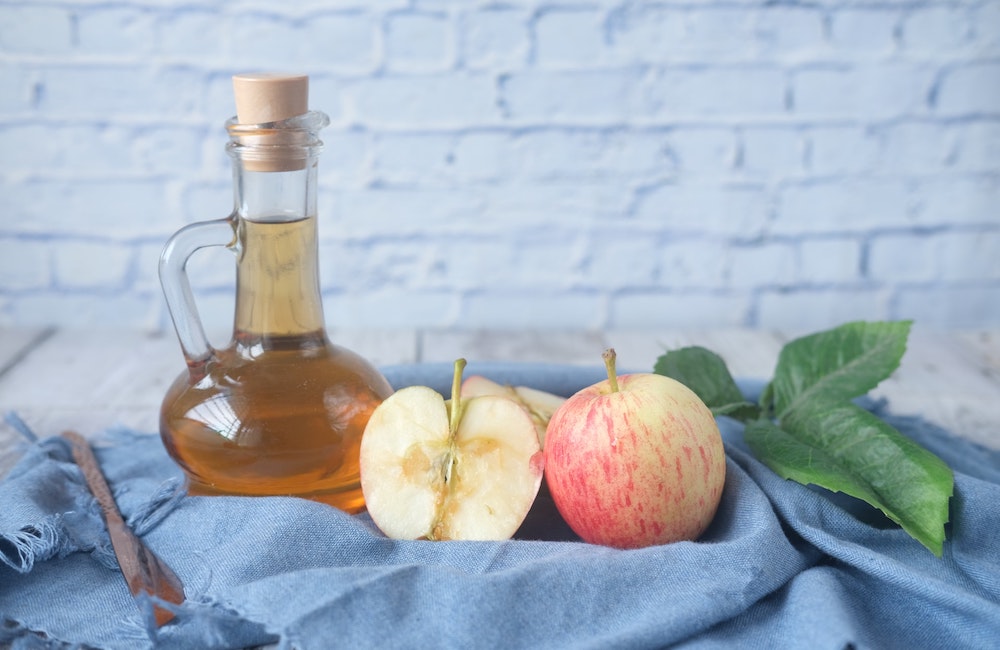
How to Remove Garlic Odour in the Mouth
The odour is usually due to the high sulphur content and can be removed by these methods:
- Add a teaspoon of baking soda in warm water and a dash of salt then use this solution and swish it in your mouth several times till you get rid of the smell
- Parsley can also be used.
- One or two teaspoons of apple cider vinegar added to a glass of water and taken before your meal containing garlic or onions. You can also swish the diluted cider vinegar in your mouth 10 – 15minutes to fight bad breath.
How to Use Garlic
Wild garlic can be used fresh, dried or in powdered forms. It equally comes in pharmaceutical dosage forms like soft gels. Let us look at how it can be used to achieve the benefits we have discussed earlier on:
- Fresh whole garlic clove can be taken crushed or minced by swallowing with water. Each clove is approximately 1g. Two to four grams per day is recommended.
- As infusions of 4 cloves in 150mls per day
- Dried powder can be sprinkled on food
- The oil can also be used
- It can be combined with ginger and turmeric in warm water and be taken first thing in the morning
Conclusion
Garlic is a great health asset but care should be taken to ensure safety in use and not to use in excess.
